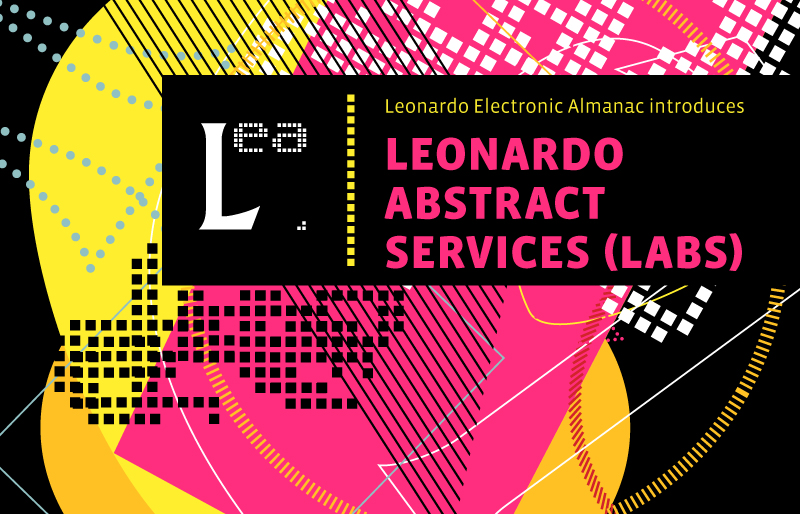
Leonardo Abstract Services (LABS) 2008-2009
Rhythmic Digitality and the Modulations of Perception
The main concern of this research is the potential of digital assemblages of art and technoscience to generate change. The thesis investigates a selection of contemporary installation artworks that deploy a range of techno-scientific processes in the search for new aesthetic experiences. These examples open a way of thinking about the digital as virtual without reducing either the virtual or the digital to each other. The hype that followed the proliferation of digital media technologies, in the last two decades, prompted a tendency in cybercultural theory to either conflate or oppose the virtual to the digital, commonly addressing the latter as immaterial, quantifiable and probabilistic. The thesis develops an alternative virtual ecology that departs from the logic of binary representational thought, without reiterating the centrality of sensory perception in digital philosophy. It contends that the participation of self-referential, abstract-yet-material dimensions is immanent to the emergence of actual digital structures of material, aesthetic and scientific combination.
This research project elaborates a philosophy of rhythm as an appropriate mode of analysis for revisiting contemporary debates about digital media, embodiment and temporality. It proposes an account of temporal agency active at a micro-perceptual resonant level, across the quasi-mathematical, biodigital and microsonic modulations of the virtual digital. Mainly, the project draws on philosophical material by Deleuze and Guattari, Massumi, Leibniz and Bachelard to further explore the microscopic (or molecular) scale of digital assemblages. This philosophical investigation provides a set of tools with which to evaluate the impact of rhythm on the production of aesthetico-scientific media environments. Overall, the thesis develops a theory of virtual dynamics for the digital as a non-computable, autonomous sphere specific to the actuality of digital code yet not fully exhausted in it.
Degree: PhD
Year: 2009
Pages: 209pp plus plates
University: University of East London, London, England
Supervisor: Dr Steve Goodman
Semail: s.goodman@uel.ac.uk
Supervisor 2: Dr Luciana Parisi
Language: English
Dept: School of Humanities and Social Sciences
Copyright: thesis copyright the author, images copyright the artists
Lang_author: English, Greek
Url:
Email: e.ikoniadou@gmail.com
Keywords: new media art, technoscience, rhythm, discrete continuity, virtual, affect, sensation, microsonic, biodigital, interactivity, transdisciplinarity, abstract materialism
LEONARDO ABSTRACTS SERVICE (LABS) is a comprehensive collection of Ph.D., Masters and MFA thesis abstracts on topics in the emerging intersection between art, science and technology.
If you are interested you can submit your abstract to the English LABS, Spanish LABS, Chinese LABS and French LABS international Peer Review Panels for inclusion in their respective databases. The authors of abstracts most highly ranked by the panel will also be invited to submit an article for consideration for publication in the refereed journal Leonardo.
